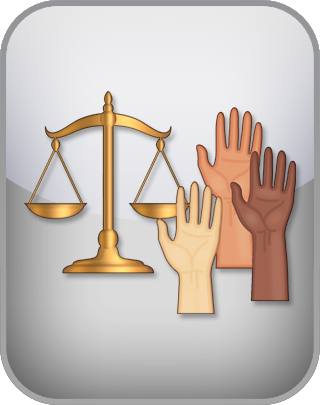Academically reviewed by Dr. Kellen Gracey, Ph.D. in political science
Democracy Stress Calculator
The research institute Freedom House has found that democracy has been declining globally for the past 14 years. At the same time, political scientists like Francis Fukuyama have developed checklists to measure whether a country’s democracy is healthy or stressed.
This test will allow you to use common political science checklists to rate the stress you believe a given country’s democracy is under.
To use the test, indicate your response to each of the following questions below.
Question 1 of 23
The head of state (or prime minister)…
Select the country you want to rate:
NEXT
The IDRlabs Democracy Stress Calculator was developed by IDRlabs.
The erosion of democracy in recent times has been a concerning global trend, with numerous countries experiencing challenges to their democratic institutions, principles, and norms. While democracy has been celebrated as a system that promotes freedom, equality, and citizen participation, various factors have contributed to its weakening and, in some cases, outright erosion.
Rise of Authoritarianism: One of the primary threats to democracy has been the rise of authoritarian leaders who consolidate power, weaken checks and balances, and suppress dissent. In some cases, these leaders may be democratically elected, but they subsequently undermine democratic institutions and stifle opposition to maintain their grip on power. They may use tactics such as media censorship, judicial interference, and restrictions on civil liberties, eroding the fundamental principles of democracy.
Erosion of Press Freedom: A free and independent press is crucial for a functioning democracy, as it serves as a watchdog, holds those in power accountable, and provides citizens with accurate information. However, in recent times, press freedom has come under attack in many countries. Journalists face threats, harassment, and imprisonment for reporting on sensitive issues or criticizing the government. Media outlets are increasingly controlled or influenced by the ruling authorities, leading to a lack of diverse and unbiased information available to the public.
Decline of the Rule of Law: Democracy relies on the rule of law to ensure that all individuals, including those in power, are subject to the same legal framework. In some countries, the rule of law has been weakened as governments manipulate legal systems to their advantage. This includes appointing loyal judges, passing laws that restrict civil liberties, and undermining judicial independence. When the rule of law is undermined, citizens' trust in institutions diminishes, and the potential for abuse of power increases.
Rapid Technological Advancements: While technology has the potential to enhance democracy through increased information sharing and citizen engagement, it has also facilitated the erosion of democratic norms. Social media platforms can be exploited for disinformation campaigns, spreading false narratives, and manipulating public opinion. Additionally, the collection and misuse of personal data raises concerns about individual privacy and the potential for manipulation in electoral processes.
Growing Economic Inequality: Economic inequality can threaten democracy by concentrating wealth and power in the hands of a few, leading to reduced political influence for the majority. When the rich can disproportionately influence politics and policy decisions, the interests of the broader population may be neglected. Economic disparities can also fuel social tensions and populism, making it challenging to build consensus and cooperation in democratic societies.
Rise of Populism: Populist movements, often fueled by discontent and frustration with the political establishment, have gained traction in many democratic nations. While some populist leaders have been democratically elected, they may prioritize short-term popular demands over long-term institutional stability, leading to the erosion of democratic norms and institutions. Populism can also foster division and polarization, making it difficult to find common ground and compromising decision-making processes.
Threats to Electoral Integrity: The integrity of elections is a cornerstone of democracy, ensuring that citizens' votes are accurately counted and reflect their choices. However, recent times have seen concerns over election interference, voter suppression, and electoral fraud. These issues can undermine public confidence in the democratic process and the legitimacy of elected leaders.
The erosion of democracy in recent times poses significant challenges to the protection of human rights, global stability, and cooperation among nations. A weakened democracy can lead to increased social unrest, political instability, and a decline in international standing. To address these challenges, it is essential for civil society, policymakers, and international organizations to work together to safeguard democratic principles, promote transparency, and strengthen institutions. Encouraging public participation, fostering media freedom, and defending the rule of law are crucial steps in preserving and revitalizing democracy for future generations.
For more information on our online tests and quizzes, consult our Terms of Service.

